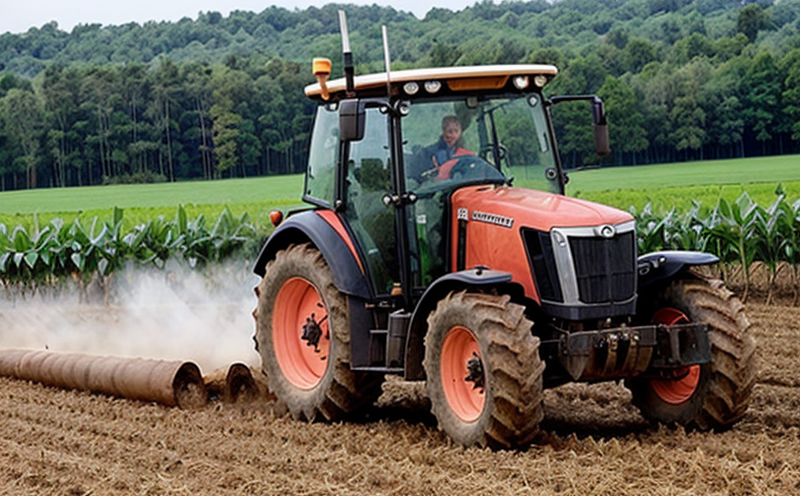Certification for Safety in Agriculture and Farming: Ensuring a Safe and Sustainable Food Supply Chain
The agriculture and farming industry plays a vital role in feeding the worlds growing population, but it also comes with inherent risks to human health and safety. From pesticide exposure to machinery accidents, farm workers face numerous hazards on a daily basis. To mitigate these risks, certification programs for safety in agriculture and farming have become increasingly important. In this article, we will delve into the world of agricultural safety certifications, exploring their benefits, types, and requirements.
Why Certification Matters
Agricultural safety certification is not just a regulatory requirement; its also an essential step towards ensuring the well-being of farm workers, protecting the environment, and maintaining public trust in the food supply chain. Certified farms demonstrate their commitment to providing a safe working environment, adopting sustainable practices, and meeting high standards of quality control.
Some of the benefits of certification for safety in agriculture and farming include:
Reduced risk of accidents and injuries: By implementing safety protocols and best practices, certified farms can minimize the likelihood of workplace accidents.
Improved productivity and efficiency: Certified farms tend to have lower turnover rates, reduced absenteeism, and increased employee morale, leading to improved productivity and efficiency.
Enhanced reputation and market access: Certification can open doors to new markets, customers, and business opportunities, as well as enhance a farms reputation and credibility in the industry.
Compliance with regulatory requirements: Many countries have implemented regulations requiring farms to adhere to specific safety standards. Certification ensures that farms meet these requirements.
Types of Certifications
There are various certifications for safety in agriculture and farming, each focusing on different aspects of agricultural operations. Some of the most common types of certifications include:
ISO 14001 (Environmental Management System): This certification focuses on environmental management systems, including waste reduction, water conservation, and pollution prevention.
OHSAS 18001 (Occupational Health and Safety Management System): This certification emphasizes occupational health and safety management systems, including risk assessment, hazard control, and worker training.
GlobalGAP (Good Agricultural Practice): This certification covers good agricultural practices, including crop protection, animal welfare, and water conservation.
Safer Farms (Safe Farming Practices): This certification focuses on safe farming practices, including machinery safety, pesticide use, and emergency response planning.
Detailed Requirements for Certification
While each certification has its unique requirements, most share common elements, such as:
Risk Assessment: Conduct a thorough risk assessment to identify potential hazards and implement control measures.
Worker Training: Provide regular training sessions for farm workers on safe working practices, hazard identification, and emergency response procedures.
Equipment Maintenance: Regularly inspect and maintain equipment to prevent accidents caused by faulty machinery.
Pesticide Use: Ensure proper use of pesticides, including labeling, storage, and disposal.
Heres a detailed example of what certification requirements might entail:
GlobalGAP Requirements:
Conduct regular audits to ensure compliance with good agricultural practices
Implement integrated pest management (IPM) strategies
Provide training for farm workers on IPM techniques
Monitor water usage and implement conservation measures
Maintain accurate records of pesticide use, waste disposal, and animal welfare
OHSAS 18001 Requirements:
Conduct a hazard identification exercise to identify potential risks
Implement control measures to mitigate identified hazards
Develop an emergency response plan for accidents or spills
Provide regular training sessions on safety procedures and first aid
Conduct regular audits to ensure compliance with OHSAS 18001 standards
QA Section:
Q: What are the benefits of certification for small-scale farmers?
A: Certification can help small-scale farmers improve their reputation, increase market access, and reduce costs associated with accidents or non-compliance. It also provides an opportunity to adopt best practices and receive technical assistance from certifying bodies.
Q: How do I choose the right certification program for my farm?
A: Consider your farms specific needs and goals. Research different certification programs, their requirements, and benefits. Consult with industry experts or certifying body representatives to determine which program aligns best with your operations.
Q: What is the cost of certification, and who bears the expense?
A: The cost of certification varies depending on the program, audit frequency, and farm size. In general, farms bear the costs of certification, although some programs offer subsidies or support for small-scale farmers.
Q: Can I implement safety measures without certification?
A: Yes, you can still implement safety measures without certification. However, certification provides an independent verification that your farm meets industry standards, which can enhance market access and reputation.
Q: How often do certified farms need to undergo audits or assessments?
A: The frequency of audits depends on the certification program and farm size. Some programs require annual audits, while others may conduct biennial or triennial assessments.
Q: Can I use a single certification for multiple aspects of my farms operations (e.g., environmental management, occupational health, and safety)?
A: While its possible to obtain multiple certifications, each program focuses on specific areas. You can consider obtaining one overall certification that covers multiple aspects, such as GlobalGAP, which includes environmental management, animal welfare, and crop protection.
Q: What are the consequences of non-compliance or decertification?
A: Non-compliance or decertification can result in fines, loss of market access, damage to reputation, and decreased customer confidence. In severe cases, it may lead to regulatory action or enforcement by relevant authorities.
Certification for safety in agriculture and farming is a critical step towards ensuring the well-being of farm workers, protecting the environment, and maintaining public trust in the food supply chain. By understanding the benefits, types, and requirements of certification programs, farmers can make informed decisions about their operations and take proactive steps to minimize risks and improve performance.

































